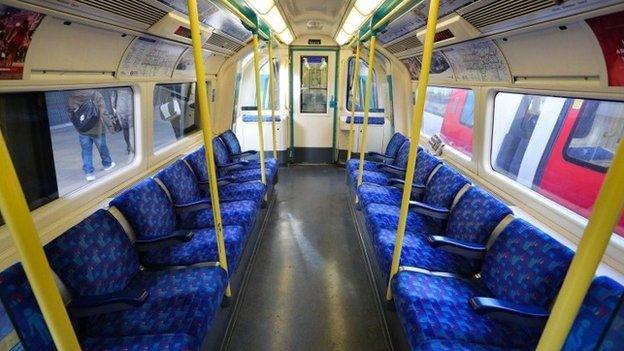Will Tube strikes change the law?
- Published

A strike that will disrupt the journeys of millions of people who live and work in the capital could alter more than their daily routine.
Senior Conservatives are now considering a series of changes to strike laws to include in their election manifesto.
London Mayor Boris Johnson has long argued for a minimum threshold so that a strike which lacked the support of half a union's members would not be legal in vital public services.
I'm told that Downing Street prefers other options - such as minimum service agreements, used in France and other European countries - to limit the number of days of strikes possible.
They are also examining tightening the rules governing strike ballots to give unions less flexibility on the timing of strike action and to widen the justification for a strike after a ballot is held.
This dispute is over the closure of all London Underground ticket offices and the loss of hundreds of jobs, in what Transport for London says is an attempt to modernise the system and save money.
The RMT union and others point out than when Mr Johnson first ran for mayor he promised to fight the closure of ticket offices.
The Liberal Democrats resisted moves within government to change the law. One source said that, while this week's tube strike was unnecessary, that did not mean there was a need for "half-baked legislation".
Labour has called on all parties to get around the negotiation table. Talks between Transport for London and the RMT have been taking place but RMT leader Bob Crow is eager to force Mr Johnson to join them - something he is refusing to do unless the strikes are called off.